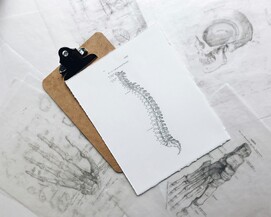CHALLENGES
We asked people from ethnic communities in Aotearoa New Zealand what challenges they faced, here's what they told us:
At times, life can be tough and coping with life’s challenges can leave you stressed, worried, scared, sad, disappointed or lonely.
You may have noticed some changes in the way you respond, think and feel towards yourself, others or situations in your life.
Some of the things you might notice in yourself, or a loved one, are:
Distress, irritability, feeling on edge much of the time
Trouble concentrating and finding it difficulty to do your usual tasks
Poor physical health
Trouble sleeping, or sleeping more than usual
Negative thinking, nightmares or intrusive thoughts (unpleasant idea or image that you find upsetting)
New health problems, or old problems returning (e.g. breathing, heart or stomach problems).
Loss of appetite or increased eating
Loss of interest in things you once enjoyed
Increased use of alcohol, cigarettes or other drugs
Sadness, hopelessness and thinking that you can’t go on living
In children you may notice withdrawal, aggressive behaviours, difficulties at school, problems with eating, sleep problems or problems separating from parents.

If you notice that some of the signs we listed above seem to last for more than 2-3 weeks, or if they feel intense, make an appointment with your GP who can help you understand what may be going on, and help you get the right support and treatment so that you can feel better.
There may be many reasons why you are not feeling good so it’s always best to speak to a health professional so you can get the right treatment and support.
Need help now?
If you are worried about your mental health and need help, you or your family can call the mental health crisis team on 0800 50 50 50. If you are in danger and need help right now, call 111. Or you can go to your nearest hospital emergency department. Click here to find out where you can go.
Getting help and support
What can I do when I am not feeling well or happy?
On our Wellbeing Tips page, there are lot of ideas and suggestions of things you can do to help you feel better and stay well. These are all things that have been tried and tested for many years, and we know can really help.
If you feel that you need more specific or detailed information for your problem or situation, we have put links to more information on our Finding Help page.
How should I get help from family and friends?
When we asked our communities what helped them feel better, or cope with difficulties, the most common thing people said was:
talking to someone about their problems and
spending time with family and friends.
Talking
We know it’s not always easy to share how you are feeling and talk about your problems, especially when your close friends and family might be living far away or you worry about how others might respond.
Here are some things to think about:
Who do you find easy to talk to? Think of the people you trust or feel comfortable with – a friend, your brother or sister, an aunty, uncle, cousin, parent, teacher or a community leader.
Chat online or phone – if your friends or family are far away, try a video call. It may not be the same as seeing them in person, but it can still make a difference.
Go at your own pace. Take the time you need and reach out when it feels right for you, and share what you feel comfortable with.
Some ideas on how to ask for support:
“I don’t feel too good at the moment, and I’m not sure what’s wrong. Can we talk about it?”
“I have been having some problems with work/ family/ study. I’m not really sure what to do. Can you help me work this out?”
“I need help but do not want to go alone. Can you come to this appointment with me?”
“Life has been difficult lately, I just need someone to talk to.”
“I have some things on my mind and just need someone to listen.”
Other support
There are lots of other ways that family and friends can help:
Spend time together doing things you enjoy like going for a walk, cinema, cooking, a dance class.
Going to cultural activities or community celebrations together
Join a new class or sports team with you
Help with daily tasks like looking after children, cooking or housework
Supporting you with health appointments
Helping you find solutions to problems you may be having, for example at work, home or school.
Talk openly with you about your feelings and regularly ask how you are doing.
How can I get help from others when that is not enough?
You might not always have people in your life that you feel you can talk to. Or maybe you have tried, but haven’t found it to be helpful. Don’t give up. Keep trying until you find someone that can help you.
On our Finding Help page, you can find organisations here in Waikato and across the rest of Aotearoa New Zealand where you can get support and find someone to talk to.
If you notice some of the signs we listed above seem to last for more than 2-3 weeks, or if they feel intense, make an appointment with your GP who can help you understand what may be going on, and help you get the right support and treatment so that you can feel better.
Feeling understood
If you can’t speak English, or think you may not be able to express your problems fully in English, you can ask for an interpreter or find a service that can offer you support in your language.
There may be many reasons why you are not feeling good so it’s always best to speak to a health professional so you can get the right treatment and support.
What is a GP (General Practitioner)?
Can I choose my GP?
Addressing language barriers
Discussing mental health with a GP
Common problems you may experience
We have provided information on some more common problems that people who move to Aotearoa New Zealand might experience below.
Embrace has fact sheets on common mental health conditions translated into a wide range of languages.
Their information has helplines and services for people living in Australia. For people living in Aotearoa New Zealand, you can find support and services here.























